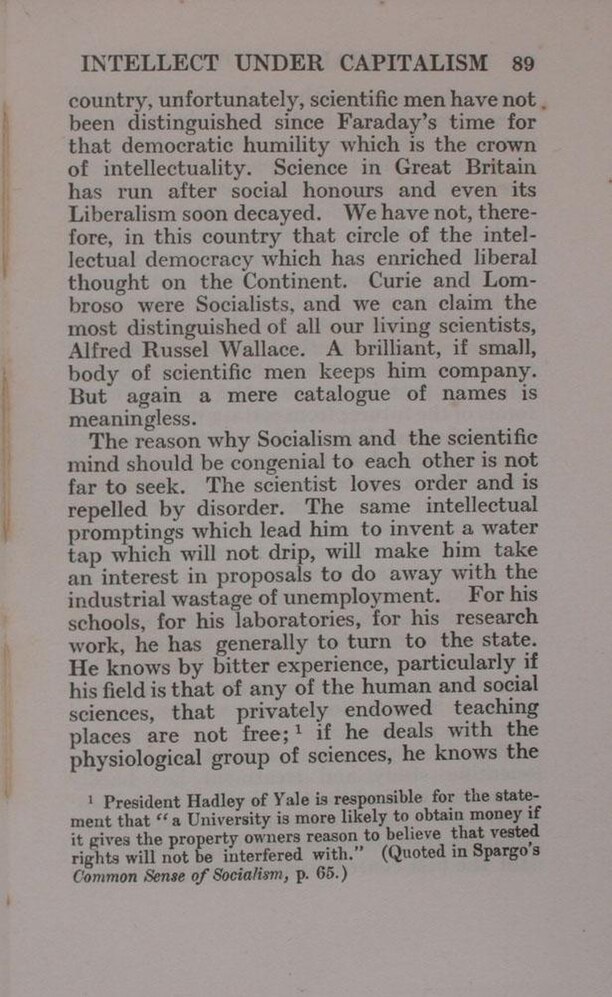country, unfortunately, scientific men have not been distinguished since Faraday's time for that democratic humility which is the crownof intellectuality. Science in Great Britain has run after social honours and even its Liberalism soon decayed. We have not, therefore, in this country that circle of the intellectual democracy which has enriched liberal thought on the Continent. Curie and Lombroso were Socialists, and we can claim the most distinguished of all our living scientists, Alfred Russel Wallace. A brilliant, if small, body of scientific men keeps him company. But again a mere catalogue of names is meaningless.
The reason why Socialism and the scientific mind should be congenial to each other is not far to seek. The scientist loves order and is repelled by disorder. The same intellectual promptings which lead him to invent a water tap which will not drip, will make him take an interest in proposals to do away with the industrial wastage of unemployment. For his schools, for his laboratories, for his research work, he has generally to turn to the state. He knows by bitter experience, particularly if his field is that of any of the human and social sciences, that privately endowed teaching places are not free;[1] if he deals with the physiological group of sciences, he knows the
- ↑ President Hadley of Yale is responsible for the statement that "a University is more likely to obtain money if it gives the property owners reason to believe that vested rights will not be interfered with." (Quoted in Spargo's Common Sense of Socialism, p. 65.)
